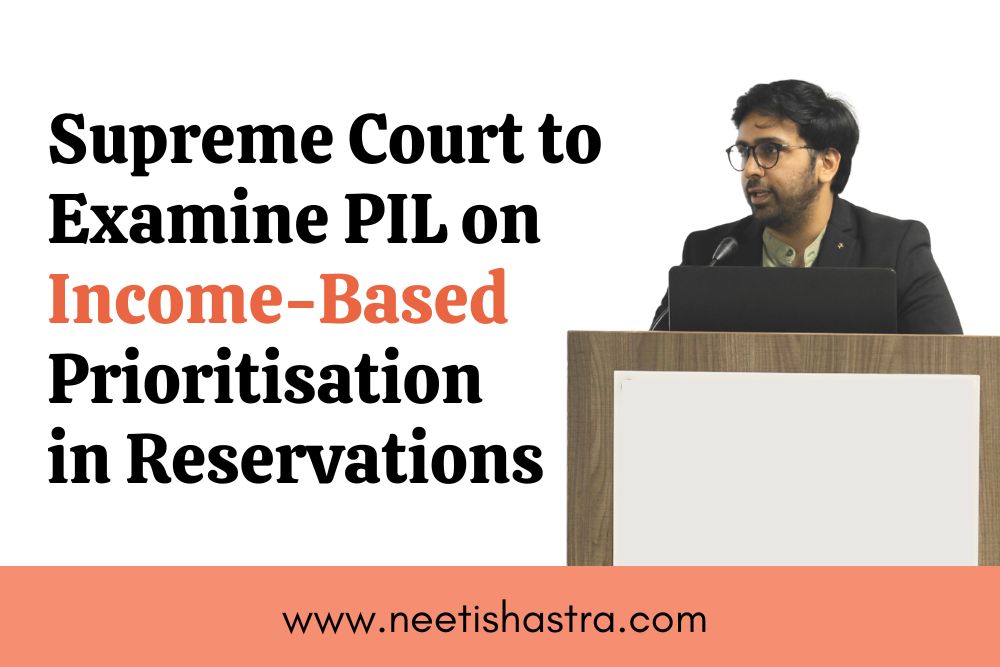The Supreme Court has agreed to hear a public interest litigation (PIL) that asks the Centre to integrate income-based prioritisation within SC and ST reservations, aiming to ensure that the most economically disadvantaged among these communities are prioritised.
A Bench comprising Justices Surya Kant and Joymalya Bagchi has issued notice to the Centre and sought its response by October 10, 2025.
What Do the Reports Say?
3,000+ lawyers and law students have secured their dream jobs and internships with our guidance. Schedule a call with us today and kickstart your career!
Context & Legal Background
The PIL arrives amidst a shifting legal landscape. In State of Punjab v. Davinder Singh (August 2024), the Supreme Court upheld the power of state governments to sub-classify SCs and STs for reservation purposes, a precedent that aligns with the current PIL’s objective of internal targeting.
Meanwhile, the landmark Indra Sawhney decision (1992) reaffirmed that caste remains a valid basis for affirmative action, while also recognizing the exclusion of “creamy layer” among OBCs, a doctrine the present PIL seeks to extend more broadly to ensure fairness even within reserved categories.
Why It Matters
The proposed reform is not a bid to dismantle caste-based quotas, but to enhance their redistributive fairness by ensuring benefits reach those most deprived rather than the relatively better-off among SC/ST groups.
If the Supreme Court finds merit in the plea, it may lead to policy changes such as internal income thresholds or sub-quotas, prompting broader debate on constitutional principles under Articles 14, 15, and 16.
______________________________
Are you a lawyer or a law student looking to get hired?
Talk to expert legal recruiters and career coaches. Contact our team at teamneetishastra@gmail.com or founders@neetishastra.co.in

By Parishkriti Atri
Parishkriti is a legal recruiter and a career coach. In her free time, she loves napping and gorging on chinese food.

